27 UNFORGETTABLE LESSONS LEARNED IN 27 COUNTRIES
While living, traveling and working in 27 different countries during the last three years, I met a lot of interesting people, did a lot of weird stuff that was far out of my comfort zone and grew a lot, physically, as well as mentally.
When I traveled, I always went off the beaten path and looked for interactions with local people. I did a lot of Couchsurfing and hitchhiking to get to know the people of the countries I was in.
Nowadays, it’s so easy to travel on a tight budget and still gain a lot from the experience. Even if you travel like me, on an average of 15$/day!
I would go this far and claim that traveling on such a tight budget could teach you some important life lessons…
Suitable to the number of countries that I visited recently, here are my top 27 UNFORGETTABLE LESSONS THAT I’VE LEARNED WHILE BEING ABROAD.
1. Things will go wrong and you will…
It is totally normal and part of the deal, that things will go wrong while being abroad. Shit happens, especially when you are traveling in less developed countries.
Tires might break, stomachs will hurt and things will get lost. But don’t worry, those happenings will teach you lessons that you won’t learn in any classroom and will force you to “think outside of the box”.
Furthermore, you will start to realize that many things that are happening are out of your control. Instead, you will learn how to focus on the things that are under your control (e.g. a positive mindset, right preparation, social skills) and will use them to solve problems instead of blaming the status quo.
Where is the point of getting angry about a flat tire, a person who cheated you or a missed flight?
As Lord Buddha already said thousands of years ago: “Holding on to anger is like drinking poison and expecting the other person to die.”
2. …learn how to solve problems!
While being on the road, I faced dozens of unfamiliar problems, which enabled me to learn a lot about the world and myself. Furthermore, I usually had to step out of my comfort zone to solve those problems and developed new skills.

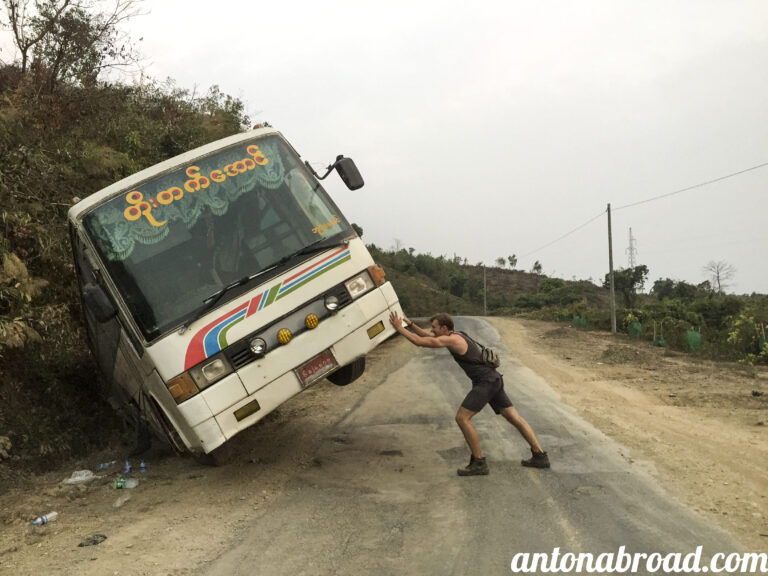
3. You are 100% responsible for yourself!
Things will go wrong while traveling and you will get in serious trouble if you won’t continuously remind yourself that you are completely responsible for your own well-being. Always carry some hidden money for emergencies and beware of sketchy situations. If shit happen’s to you, there is no one to blame except yourself.
Understand this and learn how to deal with it.
4. A positive mindset is key.
If things go wrong always remember that you have barely any influence on the outside world, but huge influence on your inner world and how you react to situations. Always look for a way to learn from your mistakes and remember that if you can’t change the situation, you can at least change your perception of it.
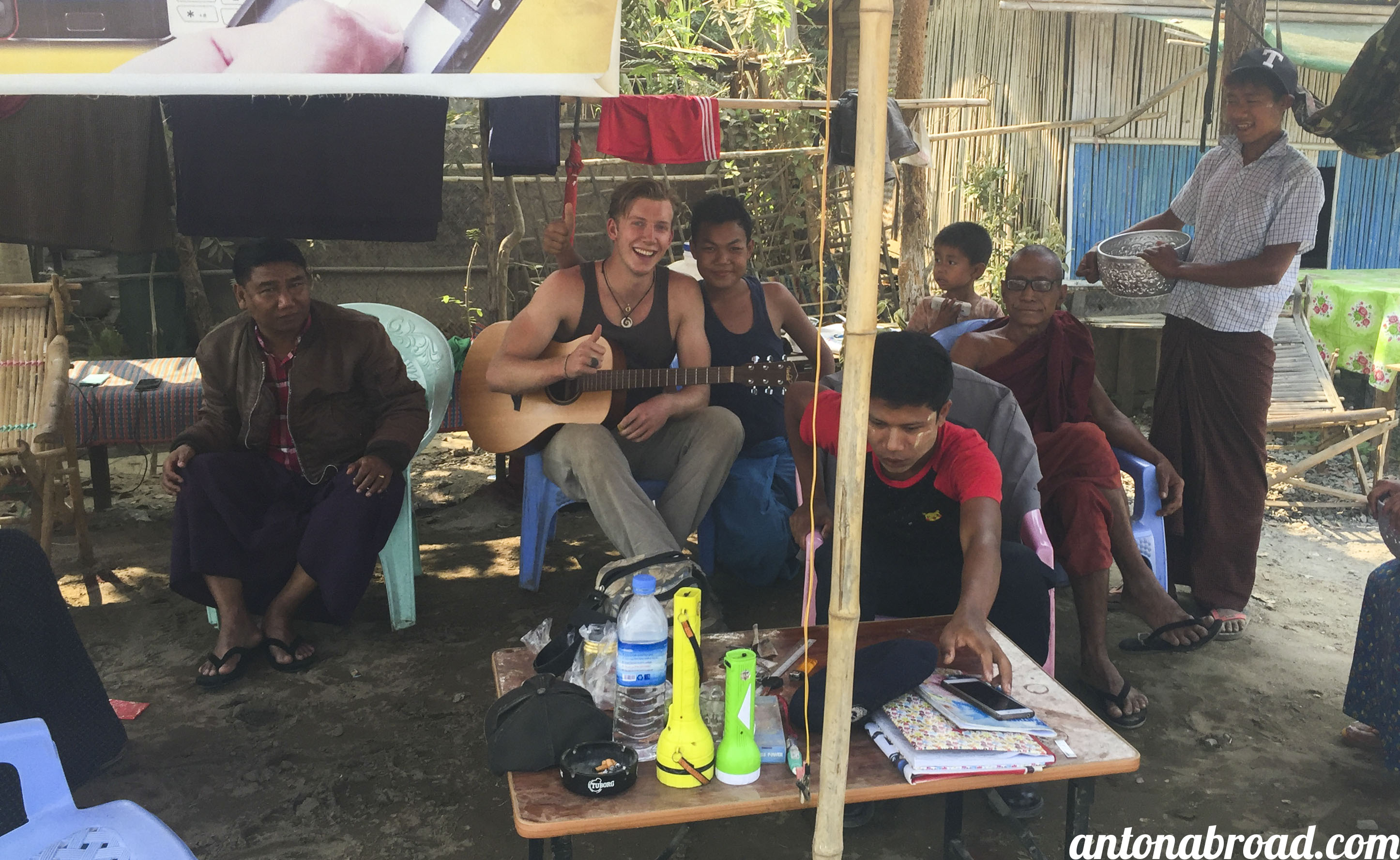
5. Happiness is a choice.
This is probably one of the most important lessons that I learned while traveling in less developed countries.
My home country, Germany, is one of the wealthiest and most prosperous countries in the world. The country is safe, we barely have any natural disasters and the average living standard is one of the highest in the world.
And still, people are complaining on a daily basis, are unfriendly to each other and often feel stressed and exhausted. It seems that the people here only focus on what they don’t have instead of focusing on what they have.
Their demands are greater than their gratitude.
In less developed countries, especially in South East Asia, I realised that people can be happy with just little wealth and security. I don’t want to say that their lives are perfect, but I highly respect the usual “asian-attitude” towards life. When I was in Myanmar as an example, one of Asia’s poorest countries, the people were very welcoming towards me and spread positive energy. Even though they had little, they still shared it with me. No begging, no complaining, just compassion and hospitality. I gave back as much as I could as this was something totally new for me.
Those interactions completely changed my perception of happiness and hospitality.
Of course, every person in this world deserves to live in a safe environment and have all its need met. But before I left Germany for the first time, I thought the people in less developed countries are all miserable from dawn until doom because of their poor living conditions.
The opposite is the case and nowadays I believe that happiness is a choice. We choose to let go, to forgive, to live for the moment and to be friendly because it actually benefits us. Because we enjoy being happy.
I don’t want to say that everyone should or could be happy, no matter in what situation they are, but I am saying that we too often forget that our worries and fears don’t get us anywhere, but stop us from living our lives to their full potential.

6. This too, will pass.
In general, I had an amazing time backpacking for more than 19 months but I would be lying if I would say that it was great all the time because it actually wasn’t. As life, traveling too has its ups and downs and the most important thing to always remember is, in positive as well as in negative situations, that “this too, will pass.”
Negative situations will be easier to handle and the beautiful situations will be valued more if you remember their impermanence.
Eckardt Tolle phrased it perfectly on page 225 in “A new earth”:
“Once you see and accept the transience of all things and the inevitability of change, you can, enjoy the pleasures of the world while they last without fear of lost and anxiety about the future.”

7. By destroying mother nature, we are destroying ourselves.
On my travels I experienced the worst types of environmental destruction and environmental pollution.
No matter if it was Bantar Gebang, South East Asia’s biggest trash landside, deforestation in Sumatra to build palm oil plantations or Nepal’s dusty capital Kathmandu, I always experienced that destroying mother nature won’t get us anywhere in the long run.
On the contrary, by destroying mother nature, we are destroying the foundation of our lives.
Of course, workers at Sumatra’s palm oil plantations were happy when they finally got a safe job. But they weren’t happy when a landslide destroyed their whole village, which could have been prevented if the forest, which stabilised the soil, wouldn’t have been burned down some years ago to raise oil palms instead.
I experienced the same in Kathmandu, where Nepalese people were telling me about the horrible respiratory diseases that their capital’s bad air created. Fuelled by economic growth, Kathmandu grew rapidly in the past decades and turned into a concrete jungle with horrible air quality due to illegal construction and a complete lack of city planning.

8. Slowly but surely, our oceans are turning into plastic oceans.
It was May the first, 2018. My friend Jonas and me went with a Philippino fishermen and his boat to an uninhabited island about 3 hours away from the main land. We were in one of the most off the beaten path part of the Phillipines and expected untouched beaches with cristal clear water.
I remember this morning as if it just happened yesterday. As we got closer towards the shore, I could already see the horrible outcome of humanity’s insane plastic consumption. The beach was covered in plastic trash. We found everything you could imagine, toothbrushes, old paint baskets, plastic bags and plastic bottles.
This experience broke my heart and started to make me seriously question my personal plastic consumption. How bad can the world’s waste management be that you can even find plastic on a beach which is in the middle of the ocean, more than three hours away from any human civilisation?
Due to our plastic cosnuming habits and the wrong disposal of plastic trash, 8 million tons of plastic trash enter our oceans from land every year.
The Ellen MacArthur Foundation is warning that there will be more plastic than fish in our oceans by 2050, if humanity won’t undergo rapid changes in its consumption and disposal of plastic trash.

9. Traveling alone will teach you many things and boost your self esteem.
Being alone on the road is great. You can decide for yourself when you want to go and where you want to go. Furthermore, you can travel exactly how you want, without having to please anyone and are more open to talk to strangers.
Traveling alone didn’t just teach me how to deal with anxiety or loneliness, but it also made me more independent and boosted my self esteem.
I realized pretty quickly that…
10. … if you want something, you have to go and get it!
You won’t experience the adventure of your life while traveling, if you will expect that things will just happen to you. To get out of your comfort zone is an essential part of traveling alone and you are 100% responsible for your own well-being!
No risk no fun! Nothing ventured, nothing gained! You are the architect of your own fortune so take risks to get what you want!

11. Learn to say “Assalamu o alaikum”, correctly while traveling in a Muslim country and use the phrase whenever you greet someone.
“Assalamu o alaikum”, basically means “Peace be upon you” and is used by Muslims all around the world to greet each other. Most of the Muslim countries I have visited, especially Pakistan, Bangladesh and Iran, had the most hospitable people that I ever came across.
Unfortunately, many western news channels portray Muslims as hostile and dangerous people that are intolerant and aggressive. A distorted image which doesn’t fit at all to the experiences I had when I met Muslims from different cultures. The phrase “Assalamu o alaikum” always was an ice-breaker, as well as a good first impression and a good proof that I don’t believe western news channels that distort the message of Islam.
It was not a rarity that people invited me for tea or to stay at their home just because I showed interest in their culture and treated them with respect.
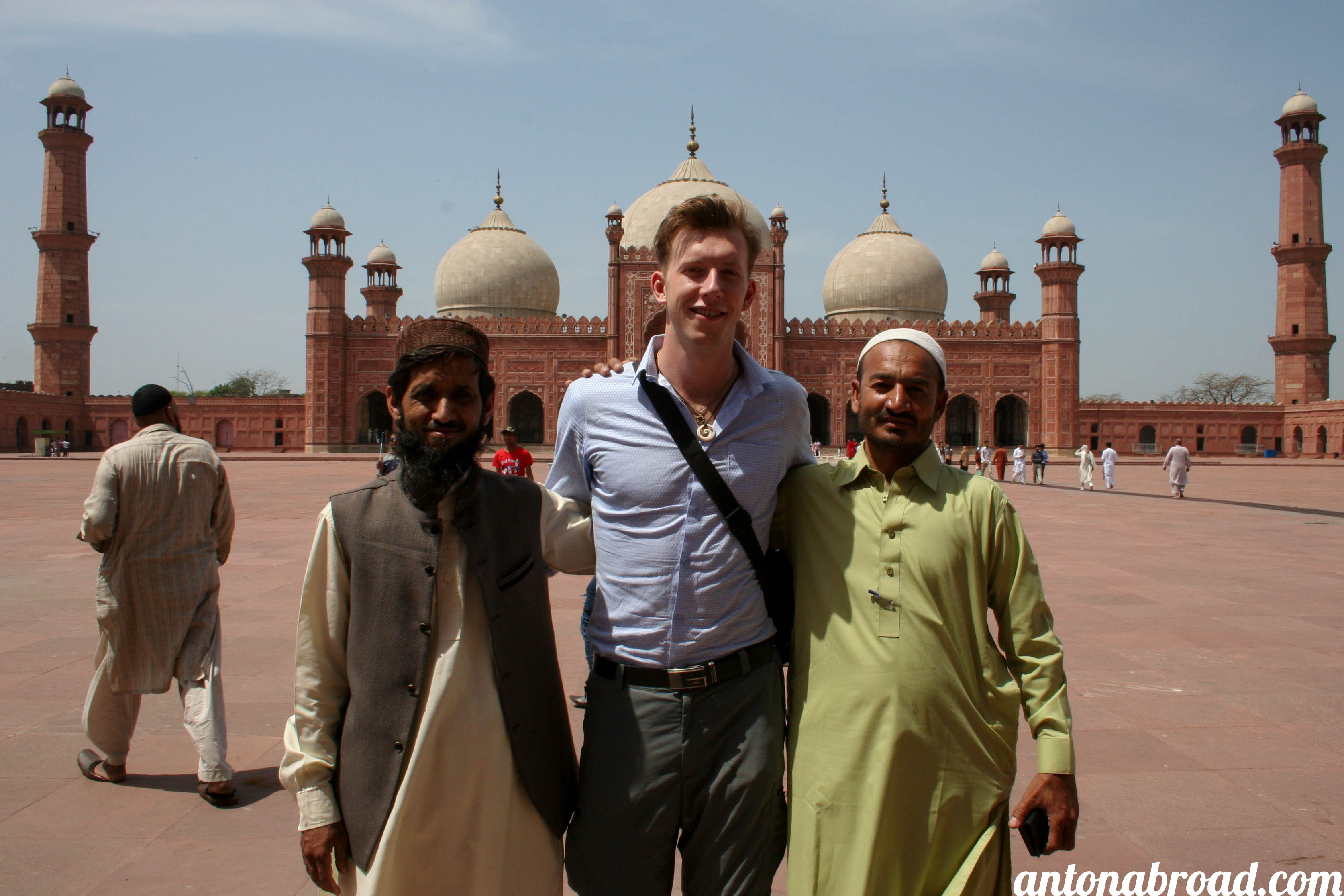
12. Locals will appreciate if you learn some words in their language…
To learn a new language requires time and effort. Some people are really proud of their culture and language and therefore, appreciate when a visitor can speak at least a couple of words in their local tongue. To learn “Hello” and “Thank you”, can be done in 5 minutes, but already proves that the guest respects local values.
I remember how I learned some basic phrases of Bahasa Indonesia while hitchhiking almost two thousand kilometres through Sumatra, Indonesia. Whenever I talked to locals in their language, they were amazed by my language skills and it felt as if the cultural barrier which separates locals from visitors, collapsed. It was not a rarity that those friendly locals opened their doors for me and let me sleep at their home.
Amazing Hospitality which I will never forget.
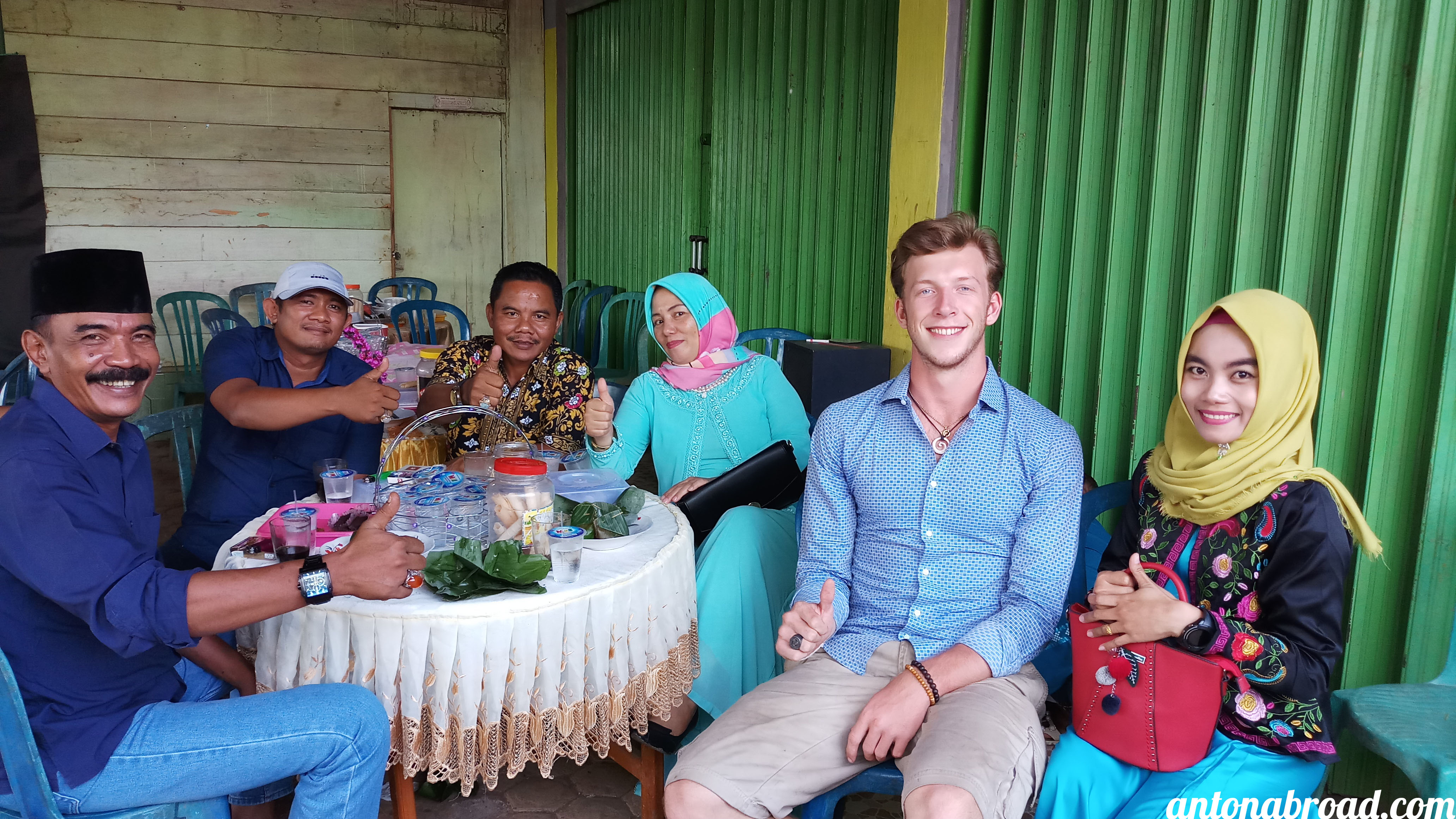
13. … and are also eager to help if you don’t.
It happened to me many times while being on the road that I had amazing “conversations” with local people even though we didn’t speak each other’s languages. It’s a lot of fun to be creative and use “hands and feet” to explain something to strangers.

14. Many local people like to interact with foreign visitors.
Being a respectful traveler has huge benefits and opens one or the other door. While traveling to different places all around the world, I never felt un-welcomed or anything similar and in contrast, often met people who were interested in me as a foreigner visiting their country.
As mentioned before, many people are actually really proud of their country’s history and culture, in contrast to my home country Germany, and like to share its values or sights with foreign visitors.

15. Don’t judge other cultures…
One of the biggest and unforgiving mistakes that I ever did while being abroad was that I was judging other cultures as inferior. It first happened when my friend Jonas and me volunteered at an orphanage in Thailand at the tender age of 18 years.
Just recently having finished high school and decided to volunteer in Asia, we had no fucking idea of what we were doing. Not knowing how to handle the situation of being in a strange environment, we tried to handle our fears with humor and started to make fun of our host’s culture. We interpreted the lack of time management as laziness and the fear of losing one’s face as deception.
Our beliefs got confirmed, as we started to pigeonhole people in our enviromment, and therefore we made a separation between us and the local people.
We got distracted from our actual role as big brothers and English teachers while spending a lot of time with complaining, as well as joking about the Thai culture.
People are different, as well as cultures are. No culture is superior and no culture is inferior!
Just accept that we aren’t all the same. Our diversity makes us special, makes us human.
I was not a good volunteer because I completely lacked the skill of accepting other cultures and norms.
16. …as well as other people!
Mental judgement happens so fast that we are barely aware of it and it distorts reality. “To see things as they are”, is one of my life goals and it requires a lot of concentration, as well as equanimity to resist the inner voice which is constantly labeling events, cultures and people.
Seriously, I often “heard” myself thinking bad about someone or insulting other people, only to feel deeply ashamed once I got to know them and their friendly behavior.
To remain equanimous and mentally open to new things and people is a key skill in our modern era of hate speech and racism.
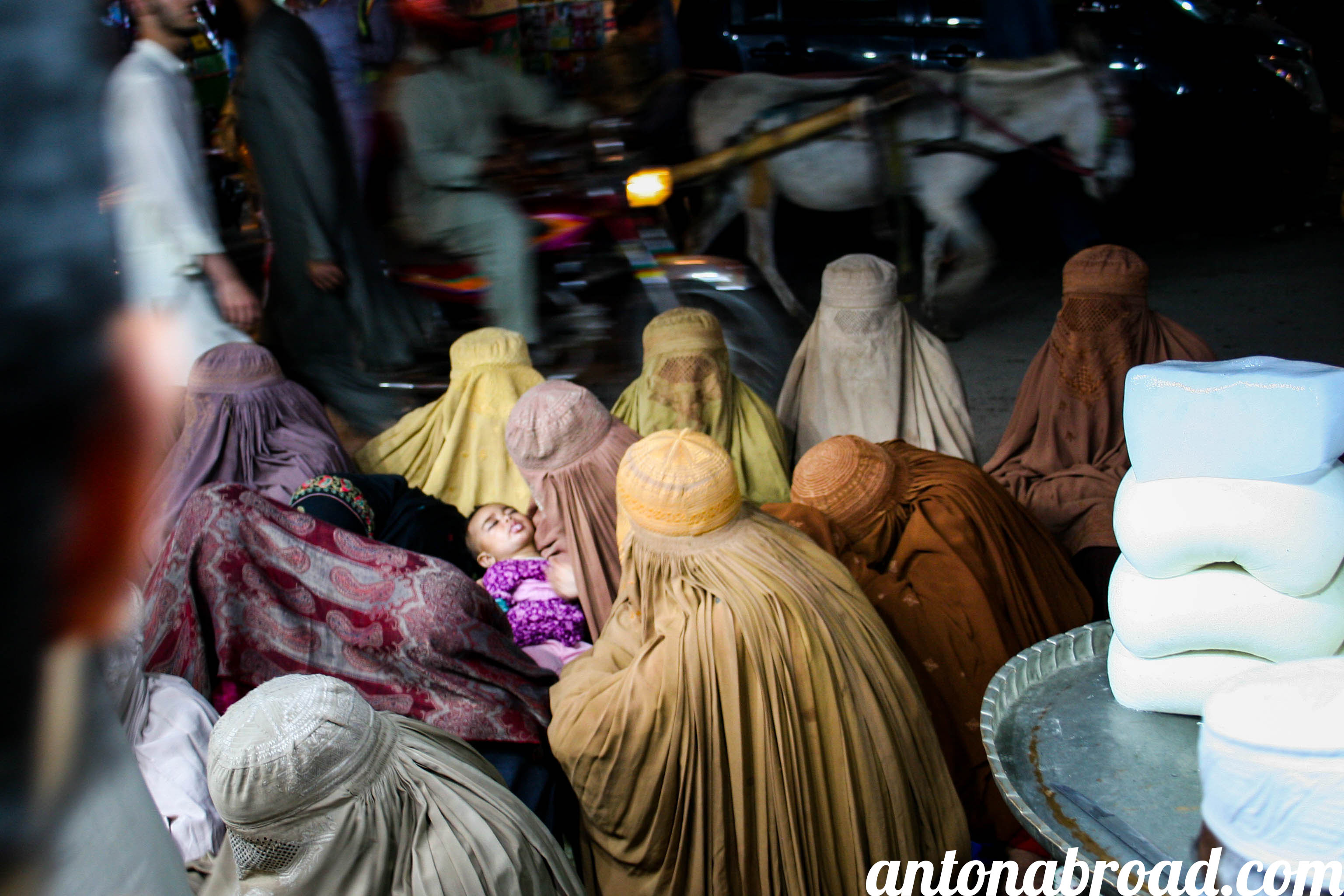

17. 99.99% of humans are good and share the same values.
No matter in what country I traveled in, I mostly met friendly people who shared the same basic values as I do. Even though people might have different cultures and norms, we all want peace, safety and a happy life.
18. The media exaggerates and most of the world’s countries are safe to travel in.
When I read news about Iran before backpacking there in 2017, I got warned by many different sources that the local population is hostile towards westeners (the opposite is the case: Iranians are some of the most hospitable people that I’ve ever met), that kidnappings are part of the daily life in Iran (they used to happen in certain areas, such as Baloochistan, and are even there a rarity) and that I will get arrested if I walk on the streets with a woman who is not related to me (I did this several times with friends that I met on Couchsurfing.com, also in front of the police, and never got into any trouble).
To put it in a nutshell: I was a little scared before I went to Iran due to those exaggerated warnings and in the end found out that most of it is just “fake news”!

19. Learn how to drive a motorbike and ride it as much as possible!
To travel by bike means to travel freely and to choose by yourself wherever and whenever you want to chill, eat or sleep. Some of my best travel memories happened to me while riding a motorbike, such as meeting and staying with Vietnamese people while crossing South East Asia by bike or riding the most stunning highway in the world, the Karakoram Highway in Pakistan.
Furthermore, you will interact much deeper with the environment around you as there is no physical separation between you and the outside world while traveling.
But don’t forget to…
20. Stay safe.
Things like riding a motorbike or trekking alone in the Himalaya might be fun but are possible ways to seriously get injured or even die. Therefore, it is the most important thing while traveling to stay safe and realistically evaluate the risks that you take.
Try things first in a safe environment before taking any risk and let the ego aside while making risky decisions. Safety first.
21. Avoid the generalisation trap, it might ruin your travels.
Unconsciously or consciously, we are generalising much more in our daily lives than we think we do.
Cultures and people are more divers than we think and just because your first experience with a person from country “xy” was negative, it doesn’t mean that every person in country “xy” is the same. Usually we don’t realise that we are generalising and unconsciously pigeonhole countries, people or cultures.
Be aware of your thoughts and remember that people are individuals, “a person who thinks or behaves in their own original way.”

22. Meditation actually works.
When I was in India, I did my first “professional” meditation course, organised by dhamma.org.
It was a life changing experience and I am meditating since then at least 45 minutes every day. I even wrote an article about the my experience and the practise of Vipassana meditation, you can read it here.
23. And to play “the dumb tourist” works as well!
It might happen that you will get into trouble with the police here and there and I recommend to just smile friendly, talk in a strange language and always repeat:”No money, no english.”
See how the interaction goes but usually cops will let “dumb tourists” leave as they try to avoid the hassle of explaining you why you should pay them.
24. Traveling with a friend can be a wonderful experience.
I traveled four times with people that I would call friends. Real friends. People that I can rely on and who accept me the way I am.
Every time it was great to have someone by my side with whom I shared such vaues. Together we created life long memories and enjoyed experiencing the extraordinary stuff that happened to us on the road together. Traveling alone is fun, as well as traveling with a friend is fun. Both experiences are different and I recommend you to try both to see what suits you best.

25. Turn off your internet and focus on the country you are in instead of reading local news from your home town or watching your friends having a party on snapchat.
Yes, smartphones make traveling much easier but they can also be distracting at times! I like talking to people who traveled in the 90s or before and hear about their perception of countries, when there was no internet and no possibility of constantly staying updated with friends and family. The distraction that our smartphones create can ruin your travel experience!
Why should you be all the time connected with people who are thousands of kilometres away from you? In my opinion, being constantly in touch with friends and family distracts you from what actually matters: the present moment!

26. FOMO – the Fear Of Missing Out might ruin your travels…
“OMG! This place is AMAZING! YOU HAVE TO SEE IT!!!”, are phrases that I heard a lot while backpacking. The fear of missing out creates a feeling of restlessness, as there are billions of places worth checking out! Billions of places that “YOU HAVE TO SEE!!!”.
Don’t get too much distracted from your plan and always remember that each person has different interests. Furthermore, the perception of each individual is different. Some might like places, that you don’t like so think twice about the recommendations other people are giving you.
27. …but it’s always good to talk with fellow travelers and exchange tips, experiences and fears.
Nevertheless, it’s always great to have fellow travelers to talk to and exchange information. Always look for the interaction with others, hear what they say about your next destination or travel plan but always remember that each individual experiences places and events differently than you might!


